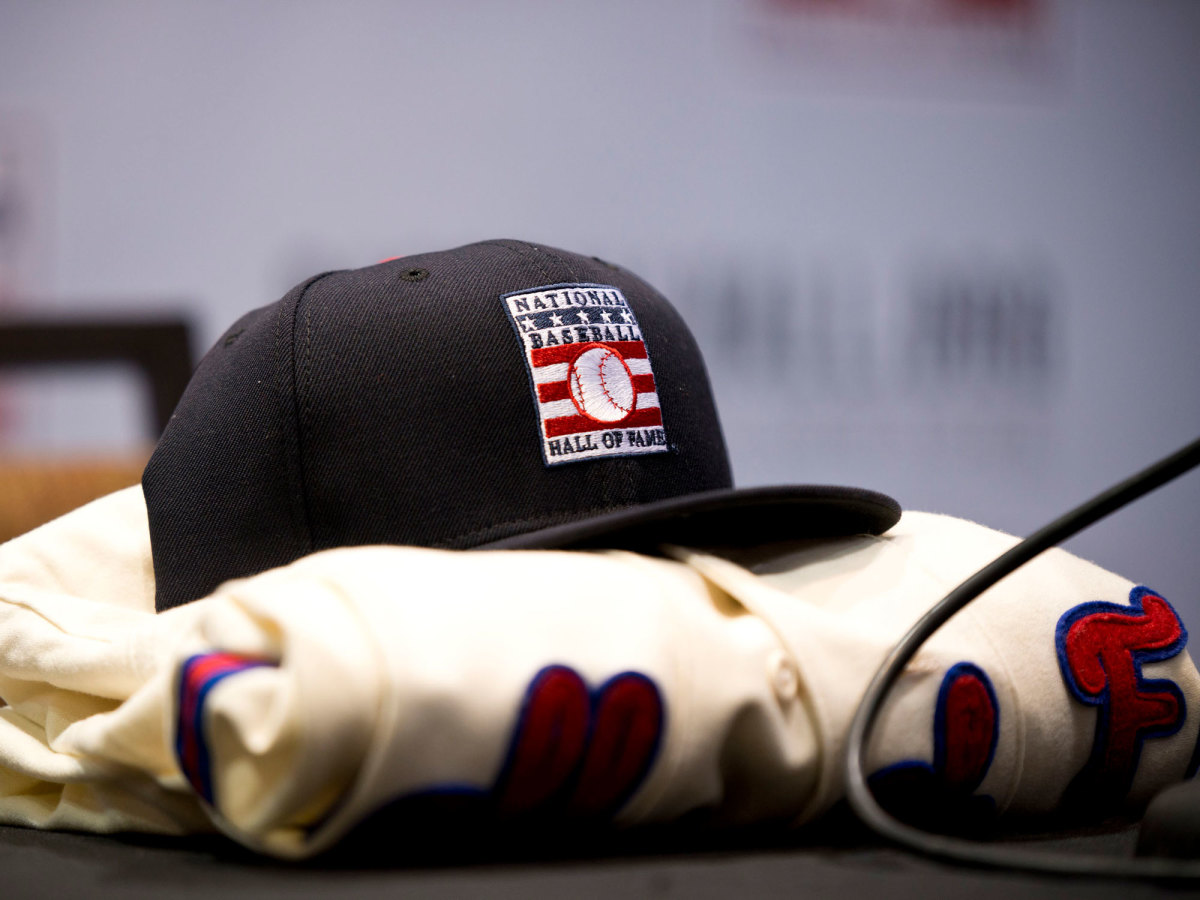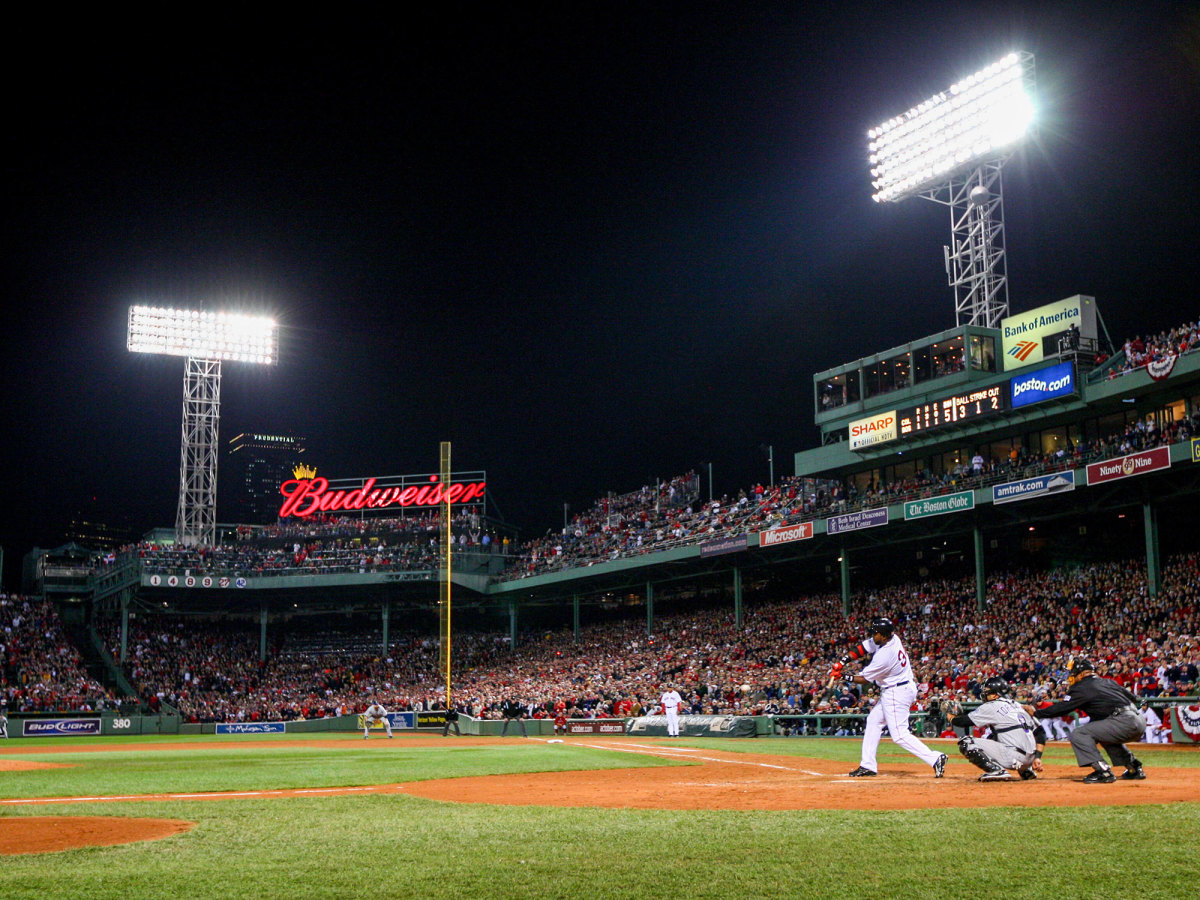How Should Hall of Fame Voting Change?
This year's Baseball Hall of Fame announcement came and went on Tuesday without any new inductees. Filling the void, however, was a tidal wave of debate surrounding Hall of Fame voting, who should be doing it and how it should (or shouldn't) change.
There's no one-size-fits-all solution, and some argue there's no problem to fix in the first place. Even so, we asked SI's MLB experts to weigh in with one change they would make to Hall of Fame voting.
Tom Verducci
I would adopt the same rule that is in place for all BBWAA postseason award voting: voters are not permitted to reveal their ballots until after the results are announced. Let’s put an end to ballot-shaming, ballot-grandstanding and ballot-groupthink. Well, maybe not an end but a reduction of extraneous voting influences. And let’s put surprise back into the announcement of results.
Imagine if MVP voters revealed how they voted before the MVP announcement. Imagine a two-month running tote board of how Academy Award voters picked that made the Best Picture announcement moot. Overall, the Hall of Fame voting process works well. But I’d prefer a cleaner, less noisy process that doesn’t scoop itself.
Stephanie Apstein
I think the most pressing problem the Hall of Fame faces right now is one of urgency. After former players' regular candidacy expires, they are considered by one of four veterans committees, each of which meets at varying frequency. The Golden Days committee, which considers players who played between 1950 and 1969, meets only every five years. That's more than a lifetime for some of the people who were on the last ballot, such as Tony Oliva, who is 82 years old; Jim Kaat, who is 82; Maury Wills, who is 88; and Luis Tiant, who is 80. The Hall has not yet announced who will be on the ballot when the committee convenes next year, but anyone who doesn't get in then will not be considered again until 2026.
As I wrote in December, after Dick Allen died at 78 while waiting to be considered, the Hall needs to move faster. It should first eliminate the 10-player maximum on the writers' ballot, which creates backlogs of deserving players, and it should return their period of eligibility to 15 years, where it was until the 2015 election, from 10. Then it should convene the veterans committees more often. I have no problem with the committee's decision not to elect someone it feels is undeserving. What is egregious is unnecessarily keeping someone out of the Hall of Fame while he could enjoy it, then putting him in once he's dead.

Emma Baccellieri
I don't think we need a 10-vote limit per ballot. We've seen fairly small classes in the last few years—there's not a current problem with writers trying to vote for too many players. Instead, the limit just creates an artificial ceiling that's meaningless in fallow years and makes for an awkward traffic jam in packed ones. The threshold for the Hall should not need to be relative based on the other players on the ballot—if you're worthy of the Hall, you're worthy of the Hall, and that standard should hold whether it applies to one player in a given year or to 11.
Connor Grossman
The Hall needs to open its doors a little bit wider. It doesn't need to be as inclusive as the halls for football or basketball, but there were candidates on this year's ballot who will be inducted to Cooperstown but weren't this year for no good reason. It's time to even the scales, opening up the vote to broadcasters, players and yes, fans, while allowing the writers to continue voting. Weigh each of those four slices however you would like, and that's a vote that would be more representative of those who dedicate their lives to the game.
Will Laws
We need a binary ballot; a simple yes or no choice for each player with no 10-player maximum to limit voters. Prior to the 2015 election, the Hall of Fame reduced players' eligibility from 15 to 10 years, harming not only tainted candidates like Barry Bonds and Roger Clemens, but also clean ones such as Scott Rolen, Todd Helton and Billy Wagner. The 10-player maximum is an arbitrary figure that creates the very logjam the Hall of Fame has tried to alleviate. If it were gone, the many voters who have long had to omit HOF-worthy players from their ballots to make room for others they feel will gain less support would be freed to support as many nominees as they want, providing a quicker path to Cooperstown for those deserving of induction.

Matt Martell
Last year, I proposed the Hall of Fame do away with requiring candidates to receive a minimum 5% of the vote to remain on the ballot for the next year. Some of the players who lasted just one year on the Hall of Fame ballot over the last 20 years include Johan Santana, Jorge Posada, Jim Edmonds, Kenny Lofton, David Cone and Lou Whitaker. Bernie Williams, Albert Belle and Nomar Garciapara. My suggested change is to give players at least three years of eligibility, so long as they receive at least 1% of the vote. The 5% minimum threshold would kick in after three years of eligibility. This would give candidates a chance to gain support for a few years, instead of getting knocked off early on due to a crowded ballot.
Nick Selbe
I think the easy answer is to do away with the "10 votes per ballot" limitation. That would solve a lot of problems, as voters sometimes pass on voting for a player who's a sure-fire bet to be elected in favor of casting a vote for a more sentimental choice to keep a player on the ballot for another year. In the years that there aren't 10 Hall of Fame–worthy candidates up for nomination, then not much will change. But for those loaded years when 10 or more deserving candidates are eligible, not having a limit to the number of players to vote for would remove an unnecessary obstacle
Michael Shapiro
I think we need to consider lowering the threshold for induction into the Hall of Fame. The current 75% mark has limited the number of inductees in recent years, effectively shutting out those tied to performance-enchanting drugs. Move the threshold down to 60% or even 50%, and the number of inductees should rise by a considerable amount. A Hall of Fame without Barry Bonds or Roger Clemens isn't being true to the sport it's documenting the history of.
